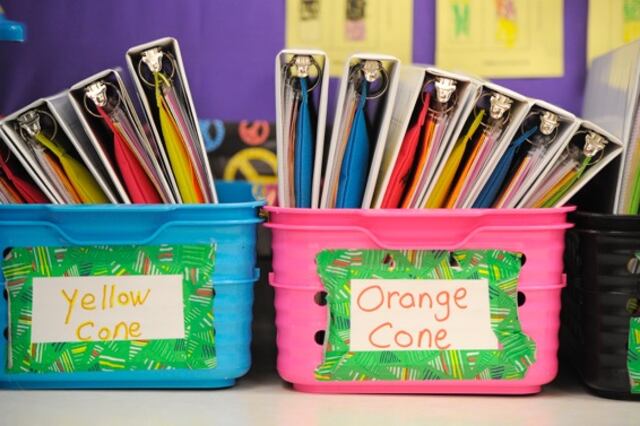A $10 million grant program meant to help Indiana schools grapple with the impact of the coronavirus is pitting charter and traditional public schools against each other and creating tension over how to divvy up federal aid.
The state notified several Indiana charter schools last week that they had won competitive grants to help them serve the most vulnerable students. But then the schools learned that restrictions that weren’t mentioned in the initial application would prevent them from accepting the grant.
The Indiana Department of Education is withholding federally funded coronavirus relief grants from schools that also received money through the federal Paycheck Protection Program, according to interviews with and documents shared by school leaders.
Dozens of Indiana charter schools received federal PPP funds — forgivable loans aimed at helping small businesses continue paying employees during the pandemic. Charter schools qualified for the loans because they are run by nonprofits, but traditional public school districts were not eligible.
The loans to charter schools drew outrage from some people because charter schools were still receiving public funding and some have wealthy benefactors. (Chalkbeat is also a nonprofit and received federal paycheck protection funding.)
The two funding streams have different purposes. While schools must spend the PPP money on salaries and facilities in order for the loans to be forgiven, the Indiana Department of Education grants are meant to help schools serve students and could go to other expenses, such as technology. The grants are a small slice of Indiana’s federal CARES Act allocation, which included $215 million for schools.
In a memo to schools in May, the department told schools it would prioritize applications from rural districts with limited resources; hard-hit areas; education-related organizations like juvenile correctional facilities; and schools that serve at-risk students, such as English learners and homeless students.
For Matchbook Learning at School 63, the grant seemed like a natural fit. Nearly 37% of the school’s 600 students are English language learners, and 98% come from low-income families. The school’s west side Indianapolis neighborhood has also been hit hard by the coronavirus, said Eric McGuire, director of personalization. Matchbook planned to use the grant to hire a social worker with experience in therapy to help students deal with trauma, officials said.
But after learning that the school was awarded more than $77,000, Matchbook leaders realized the school wasn’t eligible. To receive the funding, they’d need to formally state that the school had not gotten a PPP loan. Matchbook received a $753,000 PPP loan, according to CEO Amy Swann.
“This grant was specifically intended for schools and communities like ours,” McGuire said. “We’re just so frustrated and upset and devastated for our families and our kids.”
The Indiana Department of Education did not respond to several requests for comment from Chalkbeat.
This is just the latest dispute over school funding during the pandemic. As schools have incurred millions of dollars in extra costs to cope with the coronavirus, the argument over how to distribute federal assistance has put private, charter, and traditional public schools in competition for money.
Earlier this year, U.S. Secretary of Education Betsy DeVos ignited controversy when her department initially put out guidance that would have directed more federal money than expected to private schools. In Indiana, State Superintendent Jennifer McCormick instructed schools to ignore that guidance in favor of a more straightforward reading of the law that directs more money to public schools.
Schools across the state are also waiting to see whether the Indiana legislature will provide them full funding for students who attend virtually this school year or leave in place a law that only funds virtual students at 85%.
Charter school leaders and advocates say that the Indiana Department of Education’s decision to withhold the coronavirus relief grants from some schools conflicts with McCormick’s public statements about supporting students who are most in need.
“This seems like a political decision, rather than a decision that was based on the merits,” said Brandon Brown, CEO of The Mind Trust, an Indianapolis nonprofit that supports charter schools. “It is surprising that an elected official that has staked her tenure on resisting politics is now doing the very same thing that she spent the last four years criticizing.”
Brown called the exclusion “disgraceful” and said it will harm Black, Latino, and low-income students who attend Indianapolis charter schools.
The decision made Kristie Sweeney, head of school for Southeast Neighborhood School of Excellence, feel like McCormick was “getting back at us because she’s not a charter school supporter,” she said. The policy prioritizes “the students most in need who go to traditional public schools, not students most in need whose parents elect to have choice.”
Sweeney said it was especially frustrating because she had no indication that her school wouldn’t be eligible. The staff spent significant time preparing the application. Last week, the school heard it would receive almost $130,000 to purchase Chromebooks and Wi-Fi hotspots. But now the award won’t materialize because the school received a $742,100 PPP loan, according to Sweeney.
Indiana charter school leaders and advocates point out that charter schools lack access to many sources of education funding, such as property taxes that help pay for facilities and transportation, and ballot referendums to supplement budgets.





